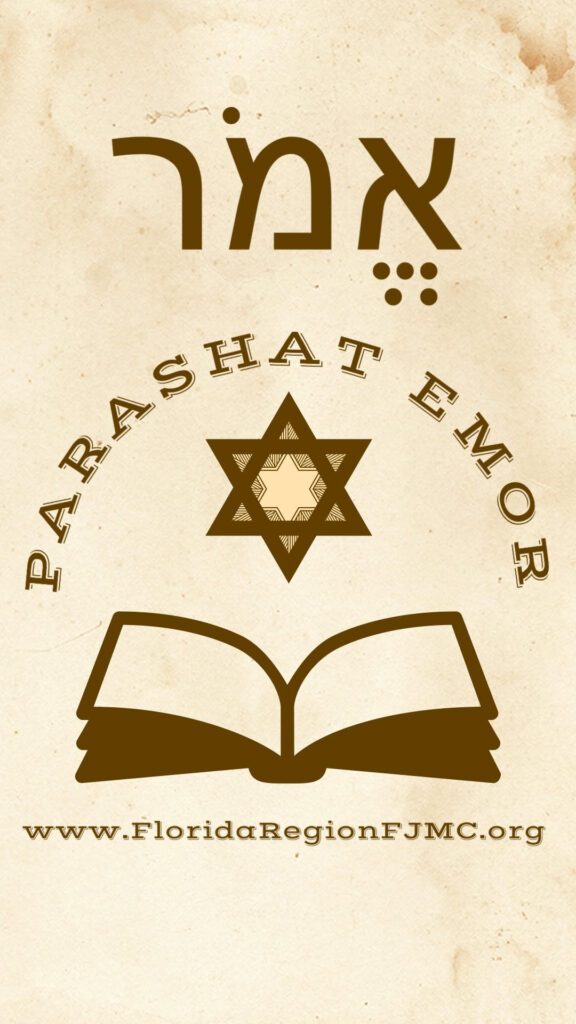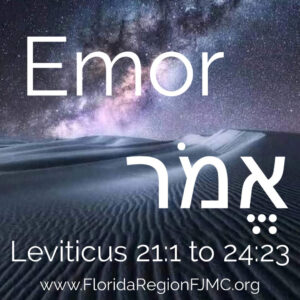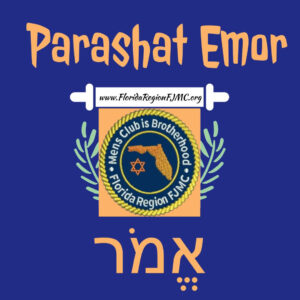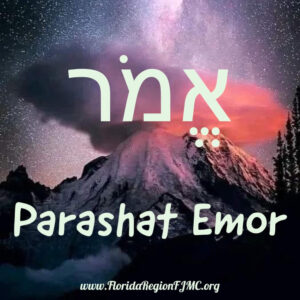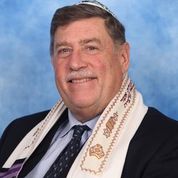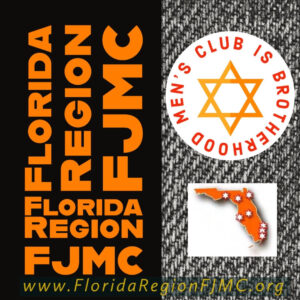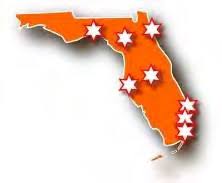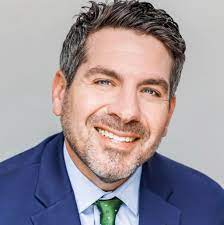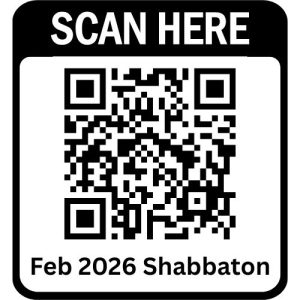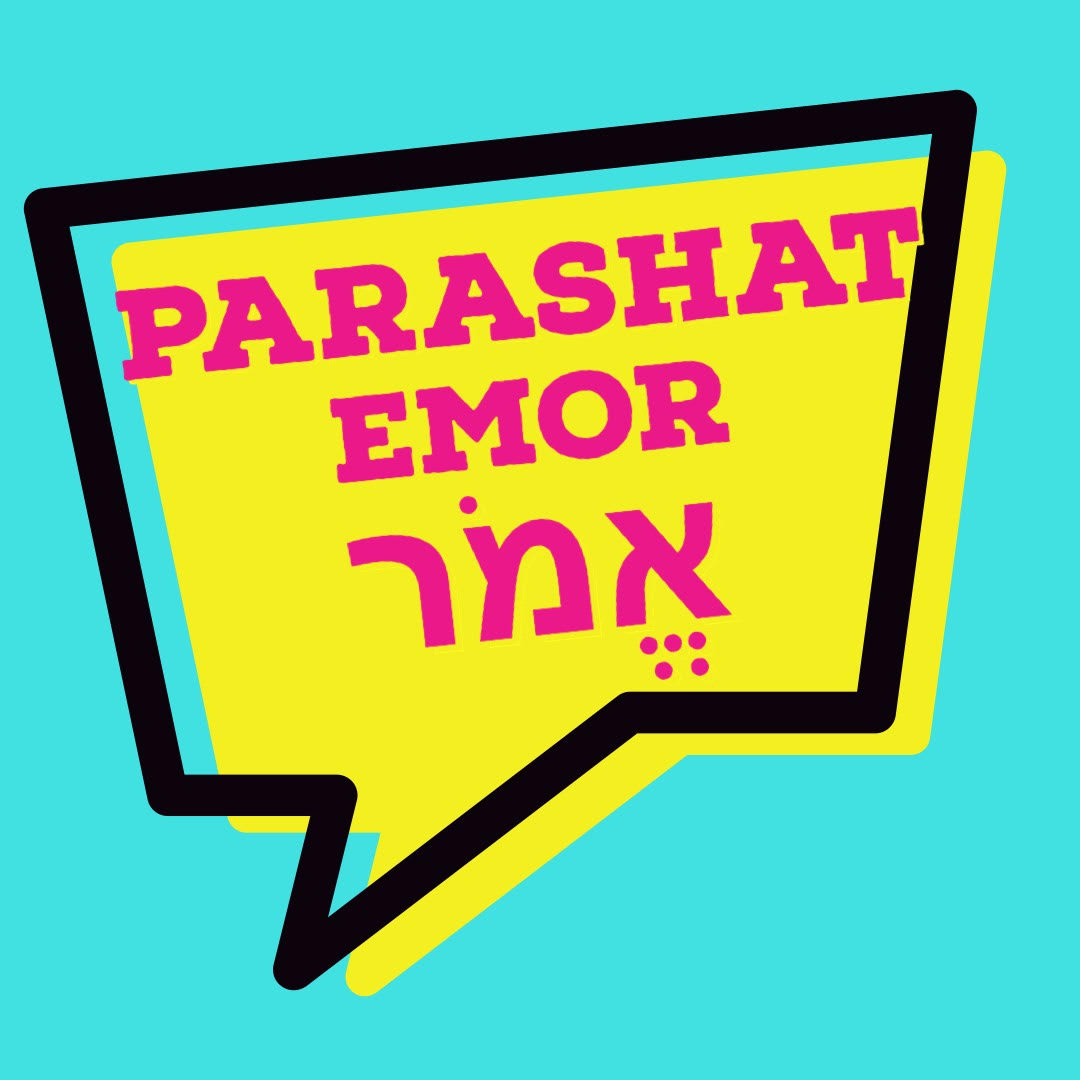
When you Choose Shabbat, you choose to learn that every Shabbat is different and special. This week I learned about Parashat Emor (אֱמֹר), the 31st weekly Torah portion in the annual cycle of Torah readings.
According to Wikipedia, Emor (אֱמֹר), Leviticus 21:1 through 24:23, contains 6,106 Hebrew letters, 1,614 words, 124 verses and makes up 215 lines of the Torah scroll, giving it the distinction of having the most verses of any reading in the Book of Leviticus. This is not to be confused with Vayikra, title holder for the most letters and words in Leviticus.
Parashat Emor describes the purity rules for priests, recounts the holy days, describes the preparations for the lights and bread in the sanctuary and tells the story of a blasphemer and his punishment.
Rabbi Michael D Klein of Temple Torat Emet offers his insights on this week’s Torah reading, Emor:
“The Torah portion Emor, that we read this Shabbat focuses further on the laws of Kedusha- Holiness especially pertaining to the Kohanim. Wait, you say, why bother reading and studying about laws dealing with a subgroup of Jews who, since the time of the destruction of the second Temple in 70CE have ceased to function in the manner described in the Torah. Why not just skip it and move on? Apparently, the Rabbis who organized the TANACH felt that this was so important to read and study for the very opposite reason. We are exhorted to be “Mamlechet Kohanim V’Goy Kadosh- A Kingdom of Priests and a Holy Nation”.
Is it possible to become a Kohain if one is not, by birth, a Kohain? The answer is in our attitude and behavior! If we accept that the Kohanim’s important roles of offering sacrifices, seeking atonement, diagnosing illnesses, consulting with G-d on holy decisions, offering blessings, teaching, redeeming the first born, etc have largely been delegated to Rabbis and other learned and committed Jews, it would seem that the title of Kohain has become an anachronism. However, nothing in the Torah is placed there by chance. For the majority of Jewish people, the exhortation to be a Holy Nation is indeed exemplified in the historical role of the Kohanim.
Thus, it is important for us to acknowledge and accept that the Laws of the Kohanim also apply, at least in theory, to Klal Yisroel as a whole, much the same as the individuals who choose to accept the Nazarite vows and those such as the Essenes during the time of the Second Temple who eschewed worldly pleasures and sought a life of spirituality and commitment to study and religious observance. In essence, these laws remind us of our commitment to Holiness, and set us apart from the other nations of the world by acknowledging and accepting the Torah as relevant to all in every generation.
Questions to Consider.
- In what situation is a Kohain permitted to defile himself/herself to attend to the dead? (Hint: applies to your Rabbi)
- What is the difference between Neder (vow) and Nedava (gift)?
- Is the wife of a Kohain permitted to eat of the Terumah?”
Rabbi Michael D. Klein attended Yeshiva College of South Florida and served as Torah Reader, Hebrew teacher, Chazzan and spiritual leader of various synagogues throughout South Florida. In January 2015 he became Ritual Director, Bnai/Bnot Mitzvah instructor and 7th grade Hebrew instructor for Temple Torat Emet of Boynton Beach. In October 2019 he was accepted into an accelerated track and received his shicha from Yeshiva Adath Wolkowisk and has been the Rabbinic leadership of Temple Torat Emet since August 2020. In September of 2022 he was appointed Rabbinic and Spiritual Advisor of the Florida Region of FJMC.
Choose Shabbat; choose to celebrate, to light candles, sing songs and learn a little Torah.
This moment of Jewish Learning is brought to you by the Florida Region of the Federation of Jewish Men’s Clubs (FJMC). We are part of a confederation of over 200 Jewish Men’s Clubs and Brotherhoods representing over 20,000 members across the United States, Canada, Latin America, and beyond. Learn more about how your Jewish Men’s Club or Brotherhood can affiliate with the FJMC at: https://www.fjmc.org/content/affiliating-fjmc.
The Florida Region of FJMC serves the needs of affiliated Men’s Clubs and Brotherhoods throughout the State of Florida. Get to know more about the FJMC Florida Region and our growing network of Jewish Men’s Clubs and Brotherhoods at www.floridaregionfjmc.org and please visit and LIKE our Florida Region FJMC Facebook Group at www.facebook.com/FloridaRegionFJMC.
